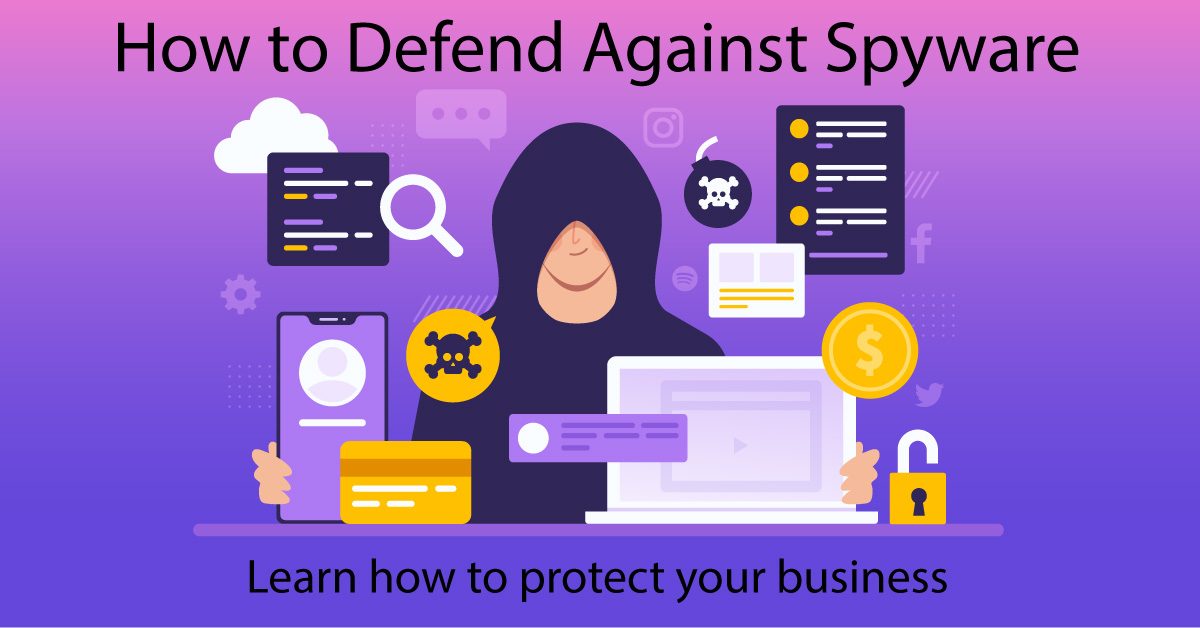Spyware is a silent but dangerous threat impacting numerous industries, especially those managing highly sensitive information. Technology companies, healthcare providers, defense contractors, and financial service firms are increasingly becoming prime targets. The sensitive nature of the data they handle—ranging from intellectual property and customer records to financial data and trade secrets—makes them vulnerable to significant risks.
The consequences of spyware attacks extend far beyond stolen data. Businesses face competitive disadvantages, costly lawsuits, and devastating reputational damage. Consumer trust is hard to rebuild once it’s broken, making it critical for industries to proactively defend against spyware threats.
Understanding how spyware operates and implementing robust cybersecurity strategies can help safeguard your business from this ever-growing risk.
Common Spyware Threats Impacting Industries
Spyware operates by stealthily gathering sensitive data without user consent. While malware and ransomware often dominate cybersecurity discussions, spyware brings its own set of specific and dangerous threats. Here are some of the most common spyware tactics industries need to watch for:
1. Keylogging
Spyware captures every keystroke on a device, stealing sensitive information like login credentials, passwords, and confidential data. This makes it easy for attackers to access secured systems and sensitive files.
2. Web Browsing Tracking
Spyware tracks website visits, collecting data on user behavior, preferences, and interests. This information can be exploited to craft phishing campaigns or target employees with deceptive attacks.
3. File Monitoring
Spyware monitors which files are accessed, opened, or modified. This allows attackers to identify and target sensitive documents containing proprietary information or trade secrets.
4. Screen Recording
Some spyware programs record screen activity, capturing sensitive data in real-time. This can include financial transactions, private communications, or any confidential information displayed on-screen.
5. Email Monitoring
Spyware can intercept and read emails, gaining access to confidential communications, contracts, and sensitive business discussions. This breach can lead to data leaks, corporate espionage, and further exploitation.
How to Defend Against Spyware Attacks
Preventing spyware infections requires a multi-layered cybersecurity approach. Below are critical strategies businesses across all industries should implement to mitigate spyware risks:
1. Regular Vulnerability Assessments and Scanning
Schedule routine vulnerability scans and assessments conducted by cybersecurity experts. These proactive measures can uncover hidden weaknesses in your systems and networks before cybercriminals exploit them.
2. Employee Education and Training
Human error is a leading cause of cybersecurity breaches. Train employees at the time of hiring and provide refresher training every six months. This applies not only to frontline staff but also to IT management. Educate your workforce on recognizing phishing attempts, suspicious downloads, and other spyware threats.
3. Strict Access Controls
Implement role-based access controls (RBAC) to limit data access strictly to those who need it. Regularly review and update access permissions—monthly or quarterly, depending on your industry—to ensure unauthorized users can’t access sensitive information.
4. Data Encryption
Encrypt sensitive data both at rest and in transit. Encryption protects critical information from being accessed or stolen, even if a system is compromised.
5. Adopt Strong Security Practices
If your organization lacks an internal cybersecurity program that undergoes regular testing and review, partner with a third-party cybersecurity provider. Professional cybersecurity firms can help design, implement, and manage comprehensive security strategies tailored to your industry’s needs.
Conclusion
Spyware may not make as many headlines as ransomware, but it poses a significant and stealthy threat to industries handling sensitive data. From keylogging and file monitoring to email interception, spyware is designed to infiltrate and extract critical business information. The financial, legal, and reputational damage that can result is too great to ignore.
Proactively defending your business requires regular security assessments, employee education, strict access controls, data encryption, and strong cybersecurity practices. Ignoring these steps leaves your business vulnerable to attack.
At The Saturn Partners, we specialize in protecting businesses from spyware and other cybersecurity threats. Let us help you build a stronger defense to safeguard your data, operations, and reputation.
Contact us today to learn how we can help secure your business.

